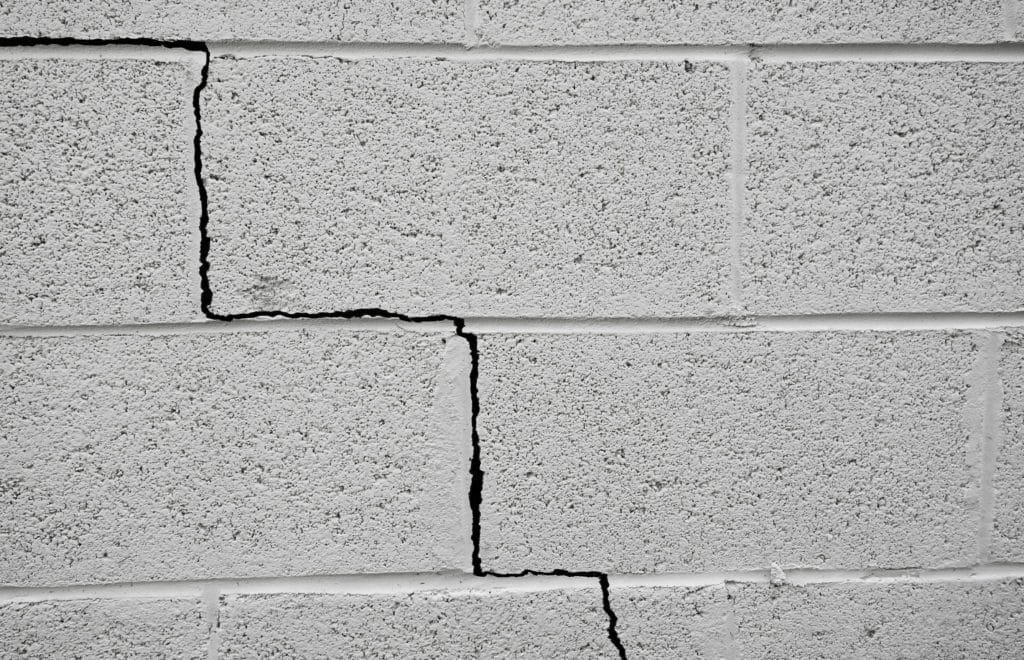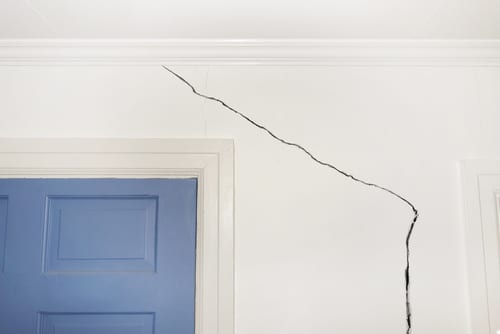Eventually, every homeowner in Florida will be faced with their foundation settling. Most homes and multi-story buildings in Florida are constructed on a concrete slab. This is due to the groundwater table, which is water that sits under the ground. Settling is a result of gravity’s downward force on physical structures. A certain amount of movement and settling is normal; however, if too much occurs, serious foundation problems can occur.
What is Foundation Settling?
As you can see, the warning signs listed above indicate that your concrete slab is experiencing something more than typical settlement. While it’s important to keep up on the minor cracks and home repairs due to normal settling, if these symptoms appear to be getting worse over time, it’s time to call a professional and have them access your foundation damage.
The best solution for foundation problems in the State of Florida is a soil remediation company. Soil remediation companies are experienced at reinforcing the ground and repairing concrete slabs back to safe and stable conditions. The longer you wait to repair your foundation, the more problems you’ll have, and there’s no question that it will cost you more in the end.
Foundation settling is a term that’s used to describe how a foundation naturally changes over time. The two major factors of settling are weather and time. As the year’s pass, new homes and multi-story buildings in Florida will eventually sink into the soil. How much a slab settles depends on the climate and soil composition that it was built on.
An engineer or concrete contractor who’s familiar with the local soil in different parts of Florida can accurately estimate how much a concrete slab in that particular area will settle over time. Compensation ratios can then be applied to the construction of the slab. When certain soil conditions require structural support before construction begins, a soil remediation company will be called in to repair and reinforce the soil.
On the other hand, if a new structure is built on improper soil or during excessive weather conditions, a new house can be subject to substantial settlement within five years or less. This generally occurs when a new house is constructed during a drought, and heavy rainfall happens after the structure is built. When this happens, the clay soil will expand, and structures built on a slab will experience some settlement. If another drought shortly follows, the clay will retract; therefore, causing several inches of settlement in just weeks or months.
It’s quite normal to see some settlement within a few years of a house being constructed. A slab that settles a few inches is normal as long as the settlement is evenly distributed. The truth is, soil contraction and expansion cannot be controlled; however, quality soil construction will endure under normal variances. Initial settlement is normal, but the ongoing settlement will cause foundation problems.
What Are Foundation Problems?
Foundation problems for Florida homeowners are the results of extreme settling, which directly affects the structural integrity of the slab. It can also affect the framing members of the house as well as interior building components such as windows, doors, walls, and floors. There are two major types of foundation problems for slabs, and those are foundation expansion and shrinkage.

1. Foundation Expansion
Most homes built in Florida are not only built on top of a concrete slab, but they’re also constructed with bricks and cinder blocks. Both materials require mortar and precise expansion joints to allow for their natural expansion and contraction that generally occurs over time. The same is true for your concrete slab if you don’t have expansion or control joints in your slab, and if it’s sitting in wet soil, it can and will expand. This creates upheaval throughout your entire home, and one of the first warning signs of foundation expansion is uneven floors.
2. Foundation Shrinkage
Concrete slabs will naturally shrink as it cures. You can see this phenomenon happen when you look for the gaps between the edges of the foundation wall and slab. It’s true that concrete will lose water; however, this is also a part of its natural chemical reaction during the curing process. The degree that a slab shrinks depends on varying independent elements that include:
- Sun exposure
- Groundwater
- Temperature
- Humidity
- Aggregate type
- Amount of water used
- Type of concrete mix
In most cases, foundation shrinkage can be noticed around windows and doors, and if the slab was poured without expansion or control joints, big cracks will appear in the middle of large walls.
Is Foundation Settling a Major Problem?
For the average Florida homeowner, determining whether structural issues and cracks are a direct result of a foundation settling or a foundation problem can be a lot harder than it seems to the untrained eye. There are certain situations when there’s no reason to be alarmed; however, there are situations when immediate action is necessary.
In most cases, the average homeowner will not be able to notice foundation settling. Chances are, they will notice small cracks that don’t grow over time and can be easily repaired. If this is the case, there’s no reason to worry; however, if any of the following warning signs are present, you should immediately contact a soil remediation company to repair and reinforce your slab before major problems occur such as complete foundation failure.
Warning Signs:
Uneven Floors:
- If you notice uneven floors on your concrete slab, this is a good sign that the structural integrity of your slab has been compromised. In addition to uneven floors, you may even notice wet spots on your carpets or hardwood flooring. This is a major problem and requires immediate repair.
Windows and Doors Don’t Shut Properly:
- If your windows and doors don’t shut properly, this can be a sign of a foundation problem. Although one window or door that doesn’t work properly isn’t enough reason to be alarmed, consider the foundation problems you may be facing if it’s happening throughout your home. Foundation failure can cause window and door frames to twist; therefore, taking them out of alignment.
Wall Cracks:

- Although some wall cracks are normal during the settling process, some are more serious in nature. Straight and hairline cracks in drywall, especially in the joints is normal; however, if you see large and jagged 45-degree angle cracks in the middle of your walls, this is a good sign that your foundation is moving and shifting. The force is so strong that the gypsum wallboard is actually being torn apart. In cases such as this, you should contact a soil remediation company immediately.
Roof Issues:
- While windows and doors that don’t shut properly as well as wall cracks are easily detectable, your roof will also reveal more proof that your foundation has been compromised. Look for uneven ridgelines, gaps, cracks or loose fascia boards. You may even notice water stains on your ceilings or paint flaking away, this is a sign that your roof has also been compromised due to foundation failure.
The Best Solution For Foundation Problems in Florida
As you can see, the warning signs listed above indicate that your concrete slab is experiencing something more than typical settlement. While it’s important to keep up on the minor cracks and home repairs due to normal settling, if these symptoms appear to be getting worse over time, it’s time to call a professional and have them access your foundation damage.
The best solution for foundation problems in the State of Florida is a soil remediation company. Soil remediation companies are experienced at reinforcing the ground and repairing concrete slabs back to safe and stable conditions. The longer you wait to repair your foundation, the more problems you’ll have, and there’s no question that it will cost you more in the end.